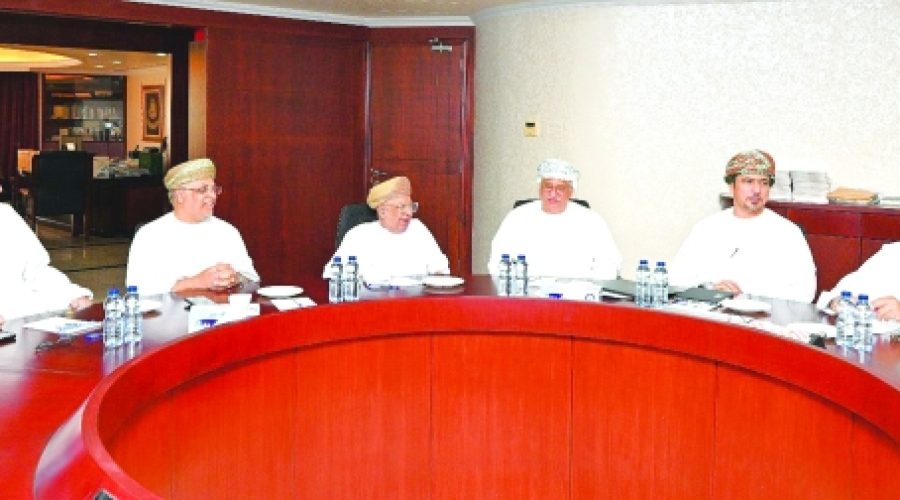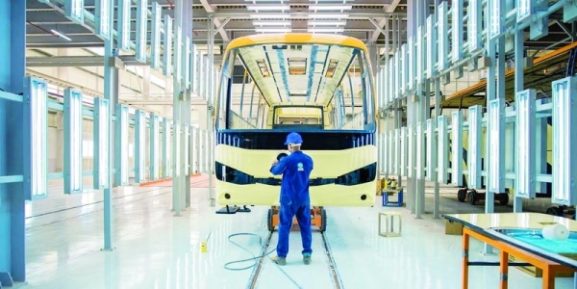IMF and Oman Economic Association’s Insights: How the Fiscal Outlook Affects Your Business Prospects in Oman
MUSCAT, NOVEMBER 19
On Tuesday, the Oman Economic Association (OEA) convened with a delegation from the International Monetary Fund (IMF) as part of the 2025 Article IV Consultations. The meeting addressed Oman’s fiscal policies, recent economic developments, and the medium-term outlook, underscoring the government’s commitment to enhancing fiscal sustainability and promoting private-sector growth.
Discussions included a review of the Medium-Term Fiscal Framework, initiatives to increase non-oil revenues, strategies for improving spending efficiency, and public debt management. The dialogue prominently featured the financial sector’s role in facilitating private-sector expansion and advancing economic diversification.
These consultations are part of the IMF’s annual engagement with its 191 member countries under Article IV of the Fund’s Articles of Agreement. They allow the IMF to assess policy performance, monitor emerging risks, and offer recommendations aimed at maintaining macroeconomic stability.
Dr. Khalid bin Said al Amri, Chairman of the OEA, emphasized the importance of this annual process, noting that hosting the IMF delegation highlights OEA’s role as an independent intellectual forum contributing to national economic dialogue. He stated that the meeting enabled a thorough examination of Oman’s fiscal trajectory, the latest economic indicators, and ongoing structural reforms designed to support long-term growth.
Dr. al Amri further pointed out the significance of the Medium-Term Fiscal Framework and government initiatives to bolster fiscal resilience through diversifying the non-oil revenue base, enhancing spending efficiency, and reinforcing debt and risk management capabilities. He remarked that maintaining open dialogue with international institutions enriches policy formulation and aligns with Oman’s long-term objectives under Oman Vision 2040.
During the meeting, Abdullah al Hassan, IMF Mission Chief for Oman and Afghanistan, noted that this year’s consultations occur amidst a period of resilience for the Omani economy in the face of global economic challenges, regional geopolitical tensions, and fluctuations in oil prices. He observed that Oman’s non-oil economy grew by 3.5% last year and is anticipated to continue at a similar rate. Al Hassan affirmed that Oman’s fiscal position remains robust, with budget performance and surpluses remaining at healthy levels, while foreign direct investment (FDI) inflows have steadily increased, despite a global downturn in such investments. Most FDI is directed towards gas-related sectors, and a narrowing of sovereign spreads reflects rising investor confidence in Oman’s economic prospects and policy framework.
The overarching theme of the 2025 consultations, Al Hassan explained, is to strengthen economic resilience and accelerate transformation in light of growing global volatility. The mission is evaluating the flexibility of Oman’s fiscal reforms, refining the monetary policy framework, developing capital markets, and implementing structural reforms essential for long-term transformation.
He cited global modeling results indicating that Oman could enhance productivity by approximately 1% over the next five years through greater adoption of artificial intelligence, a notably higher projection than that for many emerging economies.
Regarding sustainability, Al Hassan mentioned that IMF simulation exercises evaluate potential impacts of policy adjustments, such as modifications to fuel subsidies. One scenario suggests that reallocating part of the subsidy savings to support eligible households, while investing the remainder in capital projects, private-sector development, and climate-resilience initiatives, could boost Oman’s GDP by up to 7% above baseline levels by 2040.
He stressed that successful economic transformation requires not only diversifying domestic production but also improving the structure, value, and competitiveness of national exports. International comparative studies conducted by the IMF, using models from countries like Singapore, Korea, and Malaysia, provide valuable insights for Oman’s development.
In conclusion, Al Hassan indicated that the mission will continue its analytical work leading up to the final report, with a key aim of integrating local perspectives to support Oman in accelerating economic transformation and enhancing its resilience to global uncertainties.
Special Analysis by Omanet | Navigate Oman’s Market
The recent discussions between the Oman Economic Association and the IMF highlight critical opportunities for businesses in Oman, particularly through enhanced fiscal resilience and expanded non-oil revenues. Smart investors should consider capitalizing on the anticipated growth in the non-oil sector, driven by increased foreign direct investment and structural reforms. However, they must also be aware of potential risks linked to global economic volatility and the necessity for ongoing adaptation to the evolving fiscal landscape.



